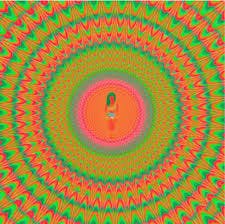Jhene Aiko’s Trip album is not your normal R&B album. Instead, it is a personal story about her recent struggles and drug abuse.
The production on this album is some of the best this year. Aiko meshed several genres - hip-hop, R&B and jazz. The consistent stoner vibe also added another layer to this production.

Before any sound emanates, she sets the tone with the album cover, displaying an image of herself walking with a psychedelic image behind her. In her first song, “LSD,” Aiko mourns her brother’s death.
She reminisces about their fond memories before he died after a two-year battle with cancer. While coping with her grief, she says she tried LSD, a hallucinogenic drug, and other drugs to see if she could reach her brother.
Starting with the first song, the album goes through Jhene Aiko’s life and her suicidal thoughts and the different drugs that she tried.
One of the strongest songs on the album was “Sativa.” Featuring Swae Lee from Rae Sremmurd, the song was based on Aiko taking the drug sativa, a special type of weed that makes you feel energetic. Together, the track’s hallucinatory rhythm and Aiko’s melody make the listener feel as though they have taken drugs themselves.
However, the most engaging track was "Overstimulated;" Aiko added variety with a hip-hop beat to the underlying trippy tone. Contrasting with the dictionary's definition of "overstimulated," she, instead, picked a slow and melodic beat to match the vibe of the album.
Aiko showed her range as a singer, switching from slow and melodic to a more aggressive and energetic tone, as well as her ability to weave together a stories. Throughout the album, she puts skits between some of her songs to further explain the feelings she experienced at the time.
While Aiko impressed, the artists featured on the album weren't able to match her quality. Only artists like Swae Lee and Mali Music were memorable, but the highly anticipated collaboration with Big Sean fell flat. Big Sean’s verse on the song “Moments” was subpar at best, appearing out of place when paired with the song’s slow tone. Unlike Big Sean, Mali's feature on “Trip” meshed well as he slowed his tone to stay consistent with the one Aiko used throughout the album.
Despite solid features, production and performances, the duration of the album dragged on a little too much and was saved only by Aiko's incredible performance.
Overall, this album definitely takes you on a trip from start to finish. Aiko's selection of beats, features and her skits make this album worth listening to.
4/5 stars












